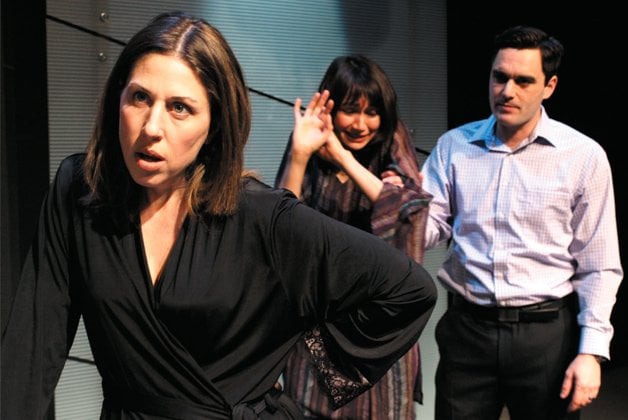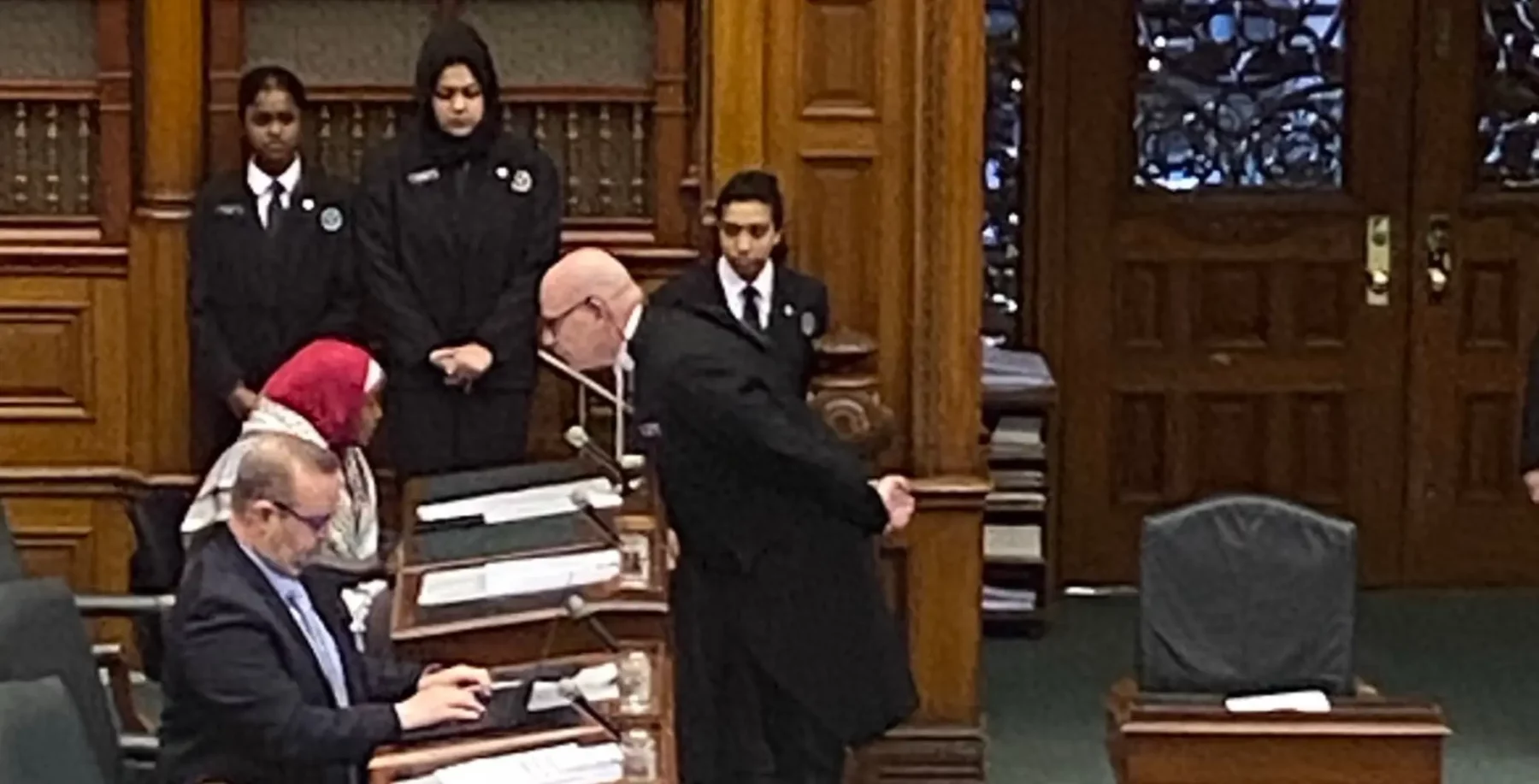
LITTLE ONE and OTHER PEOPLES CHILDREN by Hannah Moscovitch (Theatre Crisis/Theatre PANIK). At the Tarragon Extra Space (30 Bridgman). To March 24. $27-$53, stu/srs discounts. See listings. Rating: NNNN
This pair of dark one-acts by Tarragon playwright-in-residence Hannah Moscovitch offers two different yet equally disturbing views of the strange ways notions of love and family can mutate in modern life.
Little One, a hit at SummerWorks in 2011, is a chilling suburban mystery about a severely disturbed foster child named Claire (Michelle Monteith) who maliciously tests the patience, morality and ultimately the love of her step-brother Aaron (Joe Cobden). This psychological roller coaster is mostly narrated from the adult Aaron’s perspective, and Cobden does an excellent job of making Moscovitch’s expert blend of nervous middle-class humour and downright terror both gripping and totally relatable.
Director Natasha Mytnowych shrouds the action in darkness. A thin, misty fog that accentuates the narrow spotlights illuminating the actors contributes both a spooky feel and a nice metaphor for the haze of memory.
Other People’s Children drops immigrant Sri Lankan nanny Sati (Elisa Moolecherry) in the middle of a toxic marriage between career-oriented Canadian yuppies Ilana (Niki Landau) and Ben (Gray Powell). The awkward, slow-burning domestic tension flares when the caregiver seems to actually love the baby.
In these unlikely well-to-do surroundings, a different sort of fear surfaces when perpetually preoccupied Ben or micromanaging Ilana attempts to interact with the apparently well-meaning Sati. Despite the everyday veneer, conversations about haircuts and baby photos quickly become cringe-inducing, condescending, paternalistic train wrecks, which the actors and director Paul Lampert play to maximum effect.
Things get intense when the couple turn on each other to fire verbal volleys, with Sati caught helplessly in the middle.
Symbolic, trance-like scene changes clash a little with the otherwise realistic rendering, but these short, weird bookends are easily overlooked.
Through Ben and Ilana’s cold refusal to distinguish between love and care, responsibility and convenience, Moscovitch calls attention to the casual, often overlooked violence in transnational labour relations and lays bare some of the sad results in the West of outsourcing low-priority parental duties.
Together, these two Canadian horror stories tingle the spine and provoke deep, unsettling thoughts about the unintended consequences of some of our domestic arrangements.
stage@nowtoronto.com












